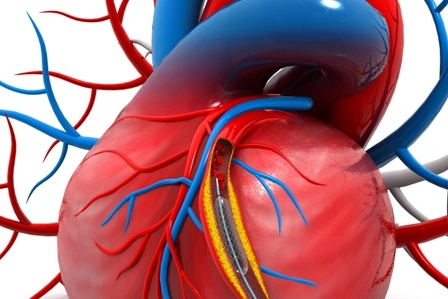CPT® 2016: Effective January, Prepare Your Practice To Adopt Possible Code Changes
Also prepare to adopt new options for abdominal aorta screening, transcatheter infusion, intravascular ultrasound, and more.
The CPT® Editorial Panel proposed some changes for 2016 in the February meeting this year. The May meeting of the CPT® Editorial Panel added a few prospective codes to the list.
Remember: The updates below are not yet official or final. They reflect decisions noted in the May 2015 CPT® Editorial Summaries of Panel Actions, but changes are possible before the code set becomes official in the fall.
Abdominal aorta screening: The Editorial Panel accepted the addition of a 767XX code that’s specific to abdominal aortic ultrasound screening.
Transcatheter infusion: It looks like non-thrombolysis transcatheter infusion therapy codes 37202 (Transcatheter therapy, infusion other than for thrombolysis, any type [e.g., spasmolytic, vasoconstrictive]) and 75896 (Transcatheter therapy, infusion, other than for thrombolysis, radiological supervision and interpretation) are on the chopping block with deletion likely for 2016.
Expect an End to Old IVUS Codes
You’ll be striking the following intravascular ultrasound (IVUS) codes off your
In their place, expect to see two 3725X codes to report bundled imaging services for diagnostic non-coronary IVUS.
See How Cerebral Revascularization Affects Thrombectomy
The February CPT® Editorial Summary of Panel Actions includes the acceptance of three new 6164X codes for “percutaneous endovascular revascularization and infusion of cerebral vessels.” You should also get some introductory language to help explain the new codes.
To make room for these changes, expect to see revisions to the following noncranial thrombectomy codes:
Match Myocardial Strain Imaging to Cat. III Code
The February Summary also noted the acceptance of a Cat. III code “for imaging of myocardial strain for myocardial malformation detection.” The test helps assess myocardial function. In echocardiography, strain describes deformation, which involves shape change.
The American Society of Echocardiography presentedevidence to help support adoption of the code (http://asecho.org/ase-worked-to-establish-a-new-code-for-echocardiography/).
Focus on 15 Minutes for Moderate Sedation
According to the February Summary, you also may see the addition of four 991XX codes for moderate sedation of 15 minutes. To go along with this change, you’ll see revisions to the existing guidelines and parenthetical notes.
You’ll also see the deletion of the current codes:
Codes 99143, 99144, 99148, and 99149 refer to an initial 30 minutes, while +99145 and +99150 are for each additional 15 minutes. Recall that the potential new codes refer to 15 minutes.
The Summary notes the Society of Interventional Radiology, Heart Rhythm Society, and the American Society of Echocardiography were involved in requesting reconsideration of the “decision to open review of the bundling of moderate sedation services into the listing of all codes in Appendix G.”
job aids:




